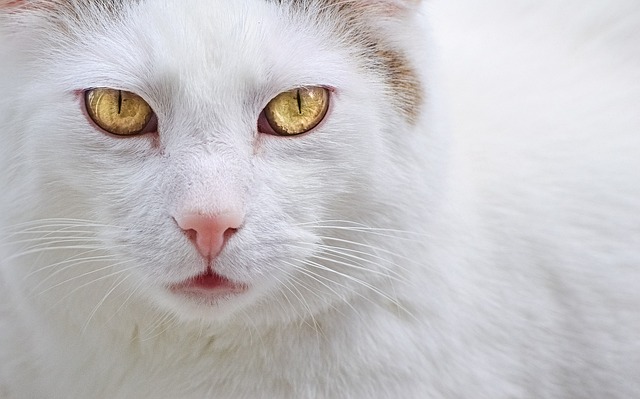Introduction
While it’s tempting to share your meal with your feline friend, not all human foods are safe for cats. This guide provides expert-vetted information on what your cat can and cannot eat. Let’s explore the feline-friendly options.
Safe Human Foods for Cats
- Meats: Cooked, lean meats like beef, chicken, turkey, liver, and lamb are safe for cats. Always ensure the meat is thoroughly cooked, and remove any bones or skin before feeding.
- Fish: Most fish types are suitable for cats and offer omega-3 fatty acids beneficial for their health. Ensure the fish is properly cooked and bone-free, and avoid serving raw fish.
- Whole Grains: Oats, corn, brown rice, and couscous are protein-rich options for your cat. These can be included in their diet in moderation.
- Eggs: Cats can enjoy a small portion of cooked eggs (scrambled or boiled). They’re packed with amino acids and protein. Never feed your cat raw eggs to avoid the risk of salmonella.
- Vegetables: While some cats may not be keen on vegetables, certain options like cucumber, steamed broccoli, carrots, asparagus, and peas can provide vitamins, fiber, and water.
- Fruits: Cats may have varying preferences for fruits. Safe options like bananas, blueberries, cantaloupe, seedless watermelon, peeled apples (deseeded), and pumpkins can be offered as occasional treats.
Foods to Avoid Feeding Your Cat
- Dairy: Milk, cheese, and yogurts can be hard for cats to digest, leading to upset stomachs and diarrhea.
- Chocolate: Dark chocolate is particularly toxic to cats and should be kept far out of their reach.
- Nuts: Macadamia nuts and walnuts, in particular, can be harmful to cats and should be avoided.
- Grapes and Raisins: Even a small amount can lead to kidney failure in cats, so it’s best to steer clear.
- Caffeine: Coffee, tea, and other caffeinated products are dangerous for cats and should never be offered.
- Allium Family Foods: Garlic, onions, chives, leeks, shallots, and scallions can cause severe health issues in cats.
- Xylitol: Found in some sweets, peanut butters, and gum, xylitol is toxic to cats and should be avoided.
- Coconut Milk: While coconut milk is popular among some pet owners, it’s best to stick to water or cat-friendly milk alternatives.
- Alcohol: Even a small amount of alcohol can be harmful or deadly to cats, so it’s crucial to keep it away from them.
- Seeds: Many seeds, particularly those found in fruits like apples, can be choking hazards or cause digestive issues in cats.
- Raw Meats and Fish: Raw meats and fish can expose cats to harmful bacteria and parasites, making them best avoided.
- Cooked Bones: Cooked bones can splinter and pose choking or injury hazards to cats.
- Raw, Uncooked Bread Dough: The yeast in raw dough can expand in a cat’s stomach, causing discomfort and potentially serious health issues.
Conclusion
Understanding what human foods are safe for cats is essential for their well-being. By following these guidelines, you can treat your feline friend to occasional safe and healthy snacks. Always consult your vet if you’re unsure about a particular food’s safety.



